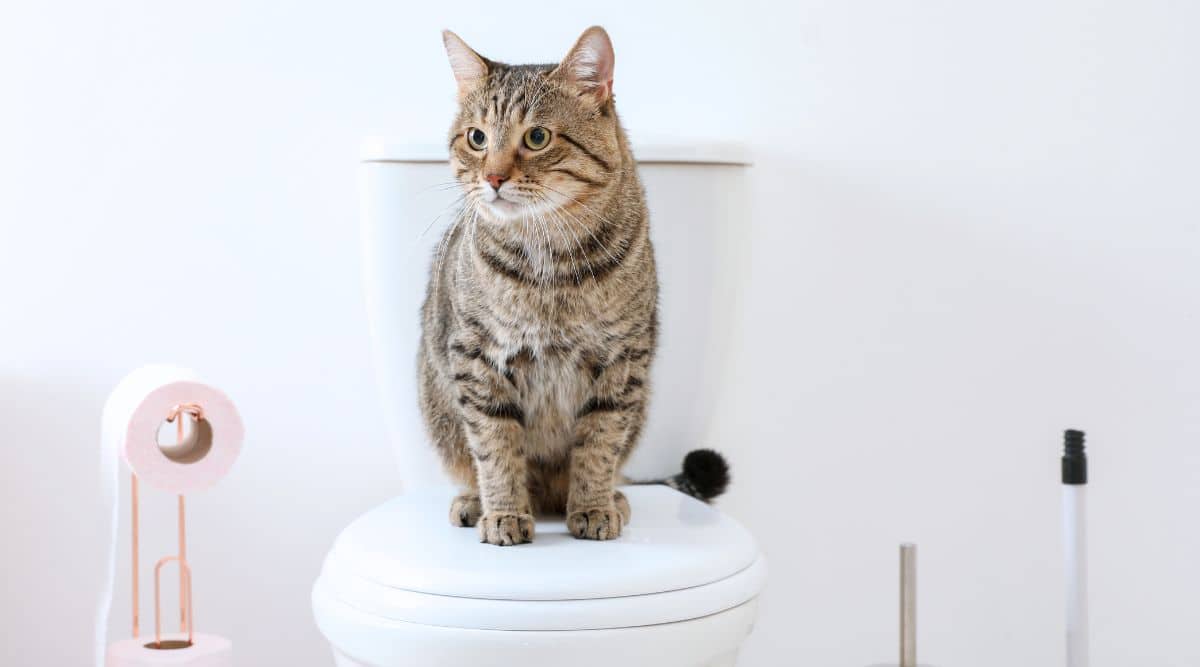Don't Flush Cat Poop Down Your Toilet - Preserve Your House's Plumbing Integrity
Don't Flush Cat Poop Down Your Toilet - Preserve Your House's Plumbing Integrity
Blog Article
This post down below involving How to Dispose of Cat Poop and Litter Without Plastic Bags is highly fascinating. Don't bypass it.

Intro
As pet cat owners, it's essential to be mindful of how we dispose of our feline good friends' waste. While it may appear hassle-free to flush cat poop down the commode, this practice can have destructive repercussions for both the atmosphere and human health and wellness.
Alternatives to Flushing
Fortunately, there are much safer and extra liable methods to dispose of cat poop. Take into consideration the following alternatives:
1. Scoop and Dispose in Trash
One of the most common method of throwing away pet cat poop is to scoop it right into a biodegradable bag and throw it in the trash. Be sure to make use of a dedicated litter inside story and get rid of the waste immediately.
2. Usage Biodegradable Litter
Choose naturally degradable pet cat trash made from materials such as corn or wheat. These trashes are eco-friendly and can be safely gotten rid of in the garbage.
3. Hide in the Yard
If you have a lawn, take into consideration hiding cat waste in a designated area away from veggie yards and water resources. Make certain to dig deep enough to stop contamination of groundwater.
4. Install a Pet Waste Disposal System
Buy a pet dog waste disposal system especially developed for pet cat waste. These systems make use of enzymes to break down the waste, reducing smell and environmental influence.
Health and wellness Risks
Along with ecological worries, purging feline waste can likewise posture wellness dangers to people. Feline feces may include Toxoplasma gondii, a parasite that can cause toxoplasmosis-- a possibly extreme disease, especially for pregnant ladies and people with weakened immune systems.
Environmental Impact
Flushing cat poop introduces harmful pathogens and bloodsuckers into the water system, posturing a substantial danger to marine communities. These pollutants can adversely affect aquatic life and concession water high quality.
Final thought
Responsible pet ownership expands past providing food and sanctuary-- it additionally includes appropriate waste monitoring. By avoiding purging feline poop down the commode and going with different disposal techniques, we can minimize our ecological footprint and safeguard human health and wellness.
Why You Should Never Flush Cat Poop Down the Toilet
A rose by any other name might smell as sweet, but not all poop is created equal. Toilets, and our sewage systems, are designed for human excrement, not animal waste. It might seem like it couldn’t hurt to toss cat feces into the loo, but it’s not a good idea to flush cat poop in the toilet.
First and foremost, assuming your cat uses a litter box, any waste is going to have litter on it. And even the smallest amount of litter can wreak havoc on plumbing.
Over time, small amounts build up, filling up your septic system. Most litter sold today is clumping; it is made from a type of clay that hardens when it gets wet. Ever tried to scrape old clumps from the bottom of a litter box? You know just how cement-hard it can get!
Now imagine just a small clump of that stuck in your pipes. A simple de-clogger like Drano isn’t going to cut it. And that means it’s going to cost you big time to fix it.
Parasitic Contamination
Believe it or not, your healthy kitty may be harboring a nasty parasite. Only cats excrete Toxoplasma in their feces. Yet it rarely causes serious health issues in the cats that are infected. Most people will be fine too if infected. Only pregnant women and people with compromised immune systems are at risk. (If you’ve ever heard how women who are expecting are excused from litter cleaning duty, Toxoplasma is why.)
But other animals may have a problem if infected with the parasite. And human water treatment systems aren’t designed to handle it. As a result, the systems don’t remove the parasite before discharging wastewater into local waterways. Fish, shellfish, and other marine life — otters in particular — are susceptible to toxoplasma. If exposed, most will end up with brain damage and many will die.
Depending on the species of fish, they may end up on someone’s fish hook and, ultimately on someone’s dinner plate. If that someone has a chronic illness, they’re at risk.
Skip the Toilet Training
We know there are folks out there who like to toilet train their cats. And we give them props, it takes a lot of work. But thanks to the toxoplasma, it’s not a good idea.

I recently found that piece of writing about Don’t flush cat feces down the toilet when doing research the search engines. Are you aware of somebody else who is fascinated with the topic? Feel free to promote it. Thanks a lot for going through it.
Click Here Report this page